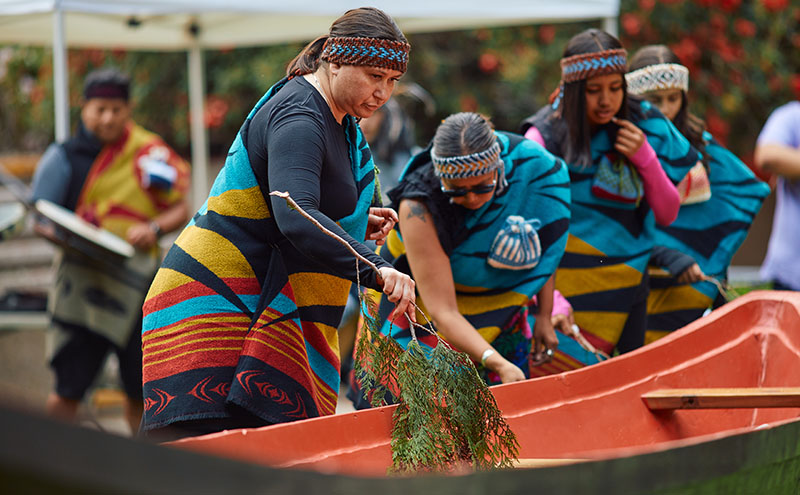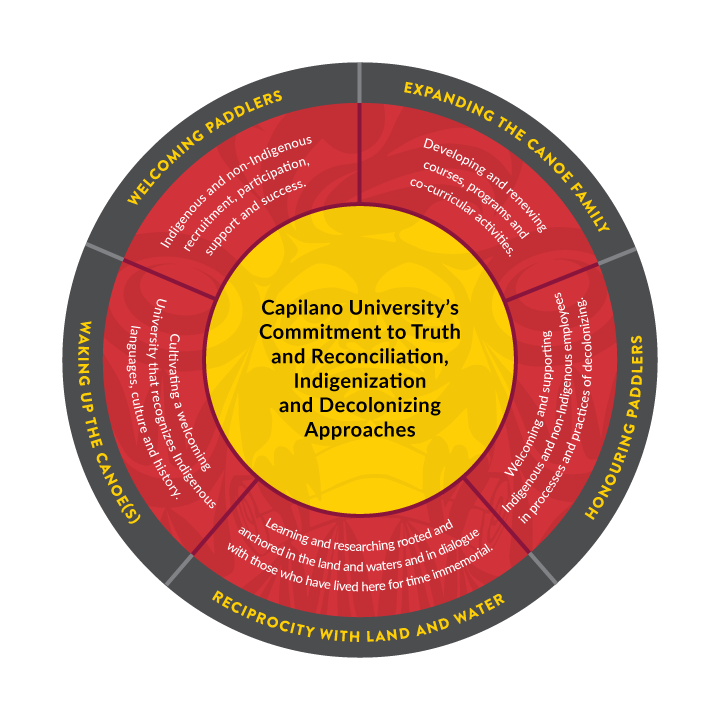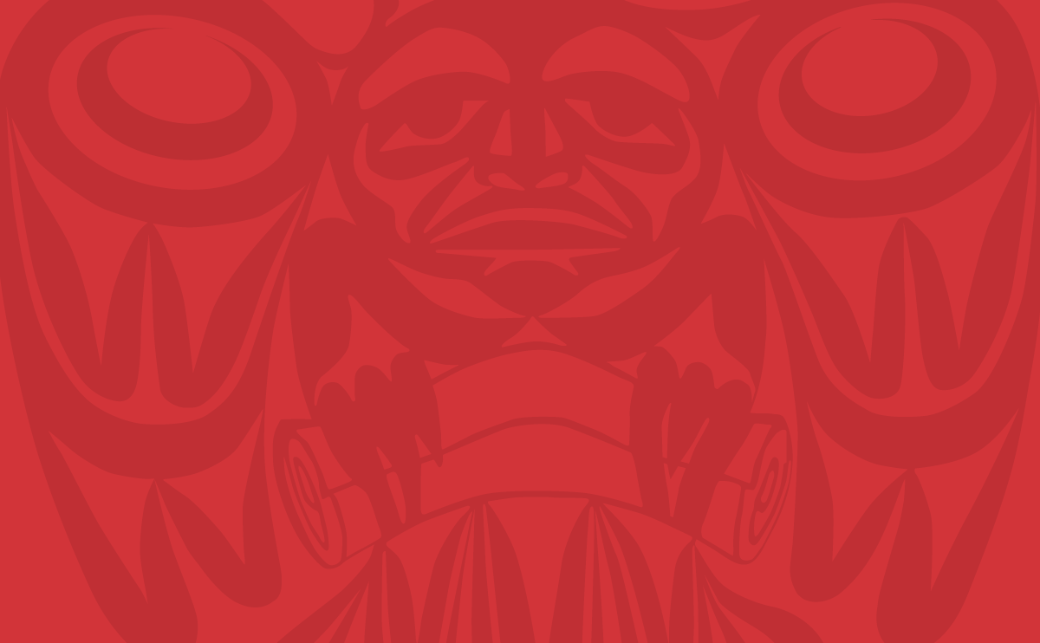Chén̓chenstway is a living document that outlines Capilano University's journey of reconciliACTION and learning.
The name Chén̓chenstway comes from the Squamish language. It means to support and respect each other and to work together with a light heart that lifts everyone up to get the work done.
– Elder Latash Nahanee
Purpose
Capilano University is committed to Indigenizing and decolonizing education at our campuses and learning locations including First Nations languages, cultures and knowledge.
Chén̓chenstway is a living document that guides the University in supporting Indigenous ways of knowing and strengthening its relationships and the relationships with First Nations, the Inuit and the Métis.
It also aligns the University's actions with its overall goals and those of the Ministry of Post-Secondary Education and Future Skills related to truth and reconciliation.

Canoe Family
At CapU, we are all part of a canoe family — whether you are a learner or alumni, staff or faculty member, administrator or community partner. Together, we are on a journey of healing, understanding and learning.
Chén̓chenstway is grounded in the insights gathered through dialogue with the CapU community, including Indigenous learners and employees, the Capilano Students' Union, the Capilano Faculty Association and the Host Nations and the Métis Nation of British Columbia.
Goals and Actions

Welcoming Paddlers
Goal: to enable Indigenous and non-Indigenous learner recruitment, participation, support and success.
- Guided by specific definitions of key related terms that centre and privilege Indigenous dignity, increase the number of Indigenous representations in learners, employees, Elders and youth.
- Develop and offer relevant Indigenous learner supports and services including bursaries, internships and scholarships along with enhanced work-integrated learning opportunities.
- Plan and implement ongoing awareness and education to address anti-Indigenous racism.
Honouring Paddlers
Goal: to welcome and support Indigenous and non-Indigenous employees in processes and practices of decolonizing.
- As part of the People Plan, create a plan for Indigenous recruitment, hiring, compensation and retention, including equity, diversity and inclusion practices. Provide an onboarding session for every new employee that outlines efforts to decolonize the University.
- Implement supports and resources for Indigenous learners, employees, youth, women, two-spirit, CapU and Community Elders, Host Nations and Métis reflective of reciprocity and mutuality in community, learning and development that enable contributions to Indigenous Education Circles.
- Celebrate and showcase successful Indigenous learners, employees and alumni to inspire others.
Expanding the Canoe Family
Goal: to develop and renew courses, programs and cocurricular activities through the lenses of decolonization, Indigenization, reconciliation and associated external guidance and policy.
- Collaborate with local Host Nations and Métis on an annually-updated community needs and aspirations assessment that informs short- and long-term programming and learner supports, as we undertake dialogue and processes to establish model(s) for increasing Indigenous participation and representation.
- Enhance Indigenous learner access to academic programs, including Indigenous universities and colleges, through community-based programs, laddering programs and pathway agreements. Also, review Cap Core learning outcomes for expanded opportunities to embed Indigenous ways of knowing.
- Guided by a land- and water-based learning framework, develop regular and high-flex courses for Indigenous and non-Indigenous learners to improve understanding of Indigenous history and culture, establish connections with Indigenous collaborators and develop relationships, including an Indigenous Studies course.
- Explore options for an academic department such as Critical Indigenous Studies, Indigenous Leadership Studies and a Centre for Indigenous Studies & Well-being.
- Create and sustain teaching and learning formative supports and strategies with Indigenization of courses/curriculum, Indigenous knowledges, decolonizing practices and Skw’cháys (canoes) cultural programming for learners and employees.
- Establish and maintain partnerships and applied research agreements as desired by Host Nations and the Métis.
Waking up the Canoe(s)
Goal: to cultivate a welcoming University that recognizes Indigenous languages, culture and history.
- Establish protocols and engagement processes to develop relationships with CapU Elders and for the use of Indigenous language and signage on campus and online. This process incorporates an Indigenous arts purchase plan, including Coast Sálish and Métis art, with the guidance of an Indigenous Education Circle to promote the expression of Indigenous identity within CapU campuses and learning locations. CapU encourages a permanent presence of Indigenous artists on campus.
- Develop a capital plan and timeline to build a Canoe House(s).
- Explore appropriate ways to honour Chief Joe Capilano.
Reciprocity with Land and Water
Goal: to facilitate learning and research rooted and anchored in the land and waters in dialogue with those who have lived here for time immemorial.
- Develop and establish protocols, guiding principles, policies and procedures for respectful engagement and community based research projects conducted with Host Nations and Métis, inclusive of Indigenous knowledge and cultural artifacts.
- Encourage research and learning grounded in ancestral and contemporary tools and Ownership, Control, Access, Possession (OCAP) training modules, offering courses on leadership to address systemic injustices, integrating Indigenous perspectives into modern academia and using culturally reflective classrooms with private meeting spaces for Indigenous learners. Ensure the development of guidebooks and resources for faculty and student researchers partaking in community-based projects.
- Establish adjunct faculty positions that will enable Indigenous entrepreneurs, Elders and scholars with specific areas of knowledge/expertise to co-teach in our courses and to provide insights around how First Nations culture and language fit into modern academia and vice versa.
